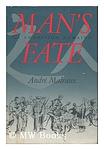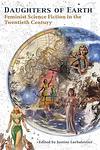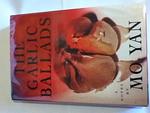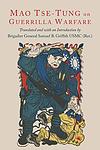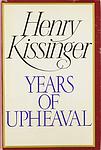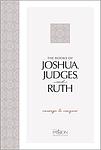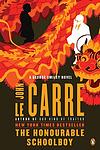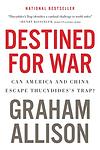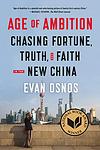The Greatest "Political, China" Books of All Time
Click to learn how this list is calculated.
This list represents a comprehensive and trusted collection of the greatest books. Developed through a specialized algorithm, it brings together 300 'best of' book lists to form a definitive guide to the world's most acclaimed books. For those interested in how these books are chosen, additional details can be found on the rankings page.
Genres
The "Political" category of books encompasses works that explore the theory, practice, and history of government and politics. These books may cover topics such as political ideologies, political systems, political institutions, political movements, and political leaders. They may also examine the relationship between politics and other areas of society, such as economics, culture, and international relations. Political books can be both informative and thought-provoking, offering readers insights into the complexities of the political world and the challenges of governing in a democratic society.
The "China" category for books encompasses a wide range of literature that explores the history, culture, politics, and society of China. This includes works of fiction and non-fiction, spanning from ancient times to the present day. Books in this category may delve into topics such as Chinese philosophy, art, cuisine, and language, as well as contemporary issues such as economic development, human rights, and environmental concerns. Overall, the "China" category offers readers a diverse and rich collection of books that provide insight into one of the world's oldest and most complex civilizations.
Countries
Date Range
Reading Statistics
Click the button below to see how many of these books you've read!
Download
If you're interested in downloading this list as a CSV file for use in a spreadsheet application, you can easily do so by clicking the button below. Please note that to ensure a manageable file size and faster download, the CSV will include details for only the first 500 books.
Download-
1. Man's Fate by Andre Malraux
Set in 1920s Shanghai during a time of political upheaval, the novel explores the existential themes of life, death, and the human condition through the experiences of a group of revolutionaries. The narrative follows their struggles and sacrifices for their cause, the Communist revolution, and their inevitable confrontation with their own mortality and the harsh realities of life. The book delves into the complexities of political ideologies, human relationships and the constant struggle between hope and despair.
-
2. Quotations from Chairman Mao by Mao
This book is a collection of speeches and writings by the former leader of the People's Republic of China. It covers a wide range of topics including communism, revolution, class struggle, and the correct handling of contradictions among the people. The book was published with the intention of promoting the leader's ideology and was widely distributed during the Cultural Revolution. It was considered an essential guide to life and politics in China during this period.
-
3. Half of Man is Woman by Zhang Xianliang
This novel provides a deeply personal account of the author's experiences during China's Cultural Revolution and his subsequent imprisonment in a labor camp. The protagonist struggles with the harsh realities of his imprisonment, including starvation and physical abuse, while also grappling with his own identity and the societal expectations of masculinity. His release and subsequent marriage only further complicate his quest for self-understanding, as he navigates the challenges of reintegrating into society and maintaining a relationship with a woman who has her own traumatic past.
-
4. A Comparative Study Of Total Power by Karl Wittfogel
The book in question is a scholarly examination of the concept of 'hydraulic civilization,' a term used to describe societies that manage large-scale water projects such as irrigation and flood control. The author argues that the bureaucratic structures necessary to control water resources in arid regions historically led to the centralization of power and the development of autocratic or despotic forms of government. Through comparative analysis, the work explores how the management of water resources influenced social, economic, and political structures, and how this 'total power' shaped the civilizations in question, with a particular focus on Asia. The study delves into the relationship between natural environments, technological capabilities, and the evolution of political systems.
-
5. Daughter Of Earth by Agnes Smedley
The book is a semi-autobiographical novel that follows the life of Marie Rogers, a woman born to a poor, rural American family at the turn of the 20th century. It explores her struggles with poverty, gender inequality, and political awakening as she moves from the American Midwest to the West Coast and eventually to international locations. The protagonist's journey is marked by her involvement in the labor and feminist movements, her complex relationships with men, and her unyielding quest for personal and social liberation. The narrative delves into themes of class struggle, identity, and the intersection of personal and political realities, offering a raw and poignant look at the challenges faced by women and the working class in the early 1900s.
-
6. The Garlic Ballads: A Novel by Yan Mo
The novel is a harsh critique of the Chinese government's agricultural policy. Set in 1980s China, it tells the story of the farmers of Paradise County, who are encouraged by the government to plant garlic, only to find that the government can't or won't buy their crops, leading to violent protests. The narrative is centered around three characters - Gao Yang, who has been arrested for leading the protests; his blind father, Gao Ma, who continues to struggle with the garlic harvest; and Jinju, the woman both men love. The book is a powerful exploration of corruption, love, the human spirit, and the struggle for justice in an oppressive regime.
-
7. On Guerilla Warfare by Mao
The book is a seminal work on irregular warfare and revolutionary strategy authored by a prominent 20th-century leader. It outlines the tactics and philosophy behind guerrilla warfare, emphasizing the importance of mobile and flexible combat strategies as a means for smaller, less-equipped forces to combat and ultimately defeat larger, conventional armies. The author discusses the integration of political and military efforts and the necessity of popular support among the local populace to sustain such movements. The work has been influential in various revolutionary movements around the globe, providing a tactical framework for conducting insurgency operations.
-
8. Oriental Despotism by Karl August Wittfogel
"Oriental Despotism" presents a theory that ancient bureaucratic societies, particularly those in Asia, developed as a result of the need to manage large-scale irrigation systems. The author argues that the control of water resources in arid regions led to the creation of centralized, autocratic power structures, which he terms "hydraulic despotisms." These governments wielded significant control over their subjects, as the management and distribution of water was crucial for agriculture and survival. The book explores how this form of governance influenced the political and social structures of various Eastern civilizations, contrasting them with Western societies that developed under different ecological conditions.
-
9. The True Believer by Eric Hoffer
"The True Believer" is a philosophical analysis of the nature of mass movements and the people who constitute them. The book argues that regardless of the specific cause, whether it be religious, political, or social, all mass movements are interchangeable and their followers are essentially the same. The author suggests that the driving force behind these movements is not the ideology itself, but rather the personal dissatisfaction and frustration of the individuals involved. The book also explores the lifecycle of mass movements, from their creation to their eventual dissolution.
-
10. Years Of Upheaval by Henry A. Kissinger
"Years of Upheaval" is a detailed and introspective account of the author's tenure as the U.S. Secretary of State during the tumultuous years of the early 1970s. The book delves into the complexities of international diplomacy and political maneuvering during a period marked by the winding down of the Vietnam War, the historic 1973 Yom Kippur War in the Middle East, and the consequential peace negotiations that followed. It also explores the intricate dynamics of U.S.-Soviet relations and the strategic arms limitation talks, providing a deep insight into the challenges and intricacies of Cold War diplomacy, all set against the backdrop of domestic political upheaval and the Watergate scandal.
-
11. The Conquerors by Andre Malraux
"The Conquerors" is a novel set against the backdrop of the 1925-1926 Chinese revolution, exploring the complexities of political upheaval and the human spirit. The narrative follows a European protagonist who becomes entangled in the revolutionary fervor sweeping through colonial Asia. As he aligns himself with communist insurgents, he grapples with the moral ambiguities of violent struggle and the personal costs of ideological commitment. The story delves into themes of power, betrayal, and the existential search for meaning amidst chaos, capturing the tumultuous atmosphere of a society on the brink of transformation.
-
12. The Honourable Schoolboy by John le Carré
In this gripping spy thriller, a British intelligence officer named Jerry Westerby is sent on a perilous mission to uncover a complex web of corruption and espionage in Southeast Asia. As he delves deeper into the dangerous world of international politics, Westerby must navigate treacherous alliances and betrayals, risking his life to uncover the truth. With intricate plotting and masterful characterization, this novel explores the moral ambiguity and high stakes of the espionage game.
-
13. Why Nations Fail by Daron Acemoğlu, James A. Robinson
This book delves into the origins of power, prosperity, and poverty, arguing that the fate of nations is determined not by geography, culture, or ignorance, but rather by the institutions that shape economic incentives and political power. It contrasts inclusive institutions, which enable and encourage participation by the great mass of people in economic activities that make the best use of their talents and skills, with extractive institutions, which are designed to extract incomes and wealth from one subset of society to benefit a different subset. Through a wide array of historical examples and analysis, the authors demonstrate how the interplay between these institutions has led to divergent paths of development among nations, suggesting that those with inclusive institutions tend to enjoy greater prosperity and success.
-
14. Destined For War by Graham Allison
This book examines the looming possibility of conflict between the United States and China through the lens of the "Thucydides's Trap," a term coined by the author to describe the inevitable tensions and potential wars that occur when a rising power threatens to displace an existing great power. Drawing from historical examples, the book explores how this dynamic has led to war in 12 out of 16 past cases and delves into the specific challenges and strategic decisions facing both the U.S. and China. It offers a detailed analysis of the military, economic, and political factors at play, while also proposing paths to avoid conflict and maintain global stability. Through a blend of historical insight and contemporary analysis, the book presents a compelling case for the two powers to navigate this dangerous period with caution and strategic foresight.
-
15. The Perfect Weapon by David E. Sanger
This book delves into the complex and shadowy realm of cyber warfare, revealing how it has become the weapon of choice for the world's powers. Through meticulous research and interviews, it uncovers the strategies behind the United States' use of cyber capabilities for espionage and sabotage, and how these tactics are now being turned against it by adversaries. The narrative explores significant cyber incidents and their implications on national security, international relations, and the future of warfare. By highlighting the challenges of defending against invisible threats in a digital age, the book underscores the urgent need for new rules of engagement in cyberspace to prevent escalating cyber conflicts.
-
16. Age of Ambition: Chasing Fortune, Truth, and Faith in the New China by Evan Osnos
"Age of Ambition: Chasing Fortune, Truth, and Faith in the New China" is a vivid exploration of contemporary China. The book delves into the lives of everyday citizens, from dissidents to entrepreneurs, and their pursuit of wealth, freedom, and faith amidst the country's rapid modernization. It provides an in-depth look into the country's socio-political landscape, including its struggles with censorship and corruption, as well as the aspirations and challenges faced by its people in the face of change.
Reading Statistics
Click the button below to see how many of these books you've read!
Download
If you're interested in downloading this list as a CSV file for use in a spreadsheet application, you can easily do so by clicking the button below. Please note that to ensure a manageable file size and faster download, the CSV will include details for only the first 500 books.
Download